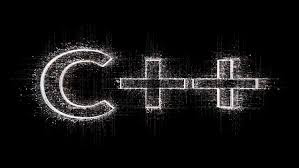10 Tips For Writing Clean Readable Code
Being a programmer is tough, no doubt
Coming up with algorithms, learning new programming languages and constantly refreshing your knowledge are just a few of what a programmer faces on a daily basis.
But just as Martin Fowler said, "Any fool can write code that a computer can understand. Good programmers write code that humans can understand."
If you want to be a successful programmer, you don't just write code, you write clean code that someone who isn't a programmer can look at and have an idea of what the code does.
So you may be wandering, how do I write clean code then?
We've got you covered.
Tip One - Assign A Single Purpose To A Single Function:
Have you ever taken a peek inside a function that was thousands of lines long? Then you'd know the amount of work and time it would take to read, edit and maintain such function.
As a programmer, your job is to break down one giant impossible task into several small possible tasks. This should also reflect in the way you write your code.
Let's say you have a function in Python that calculates the square of a number and returns it to the user. Let that alone be the sole purpose of the function.
Don't go adding some external codes into it. That just messes up the readability of your code.
Tip Two - Use Descriptive Variable And Constant Names:
A popular error made by programmers, especially beginners is using mystical variable names in their code.
A variable is a box for some value and the variable name is the label on that box.
Using variable names like "c2", "1w", "dxo" and so on is pointless and redundant because someone else reading your code would have to go through the entire line or sometimes, the entire file just to figure out the meaning and purpose of a variable.
As a best practice, always use meaningful names to store your variables.
Tip Three - Always Choose Readability Over Cleverness:
Some developers tend to squeeze tens of lines of code into a single line,thinking it "saves space".
Although it does save SCREEN SPACE, it doesn't make your code readable.
Always put a new line of code ON A NEW LINE.
Tip Four - Delete Unnecessary Code:

Most times we programmers tend to comment out some lines of code,"just in case".
While this may be okay if you're trying to see how a program would behave without a particular line of code, the more commented-out codes we leaave behind, the more noise we create in our code.
If the code has no function in the file, DELETE IT.
Tip Five - Choose The Right Architecture:
There are many different paradigms that developers use to create projects. There is no "best" here, only the "right" one.
For example, the Model-View-Controller (MVC) pattern is very popular in web development because it helps to keep your code organized in a way that minimizes maintenance efforts.
Always pick the right structure for your projects.
Tip Six - Study Other People's Codes:
Everyone thinks and codes differently. Try to study other developers' codes to see ways you could improve your own code. Just do it with permission or browse open-source sites such as GitHub.
Tip Seven - Write Good Comments:
Comments exist to explain WHY a code is written in a particular way, not WHAT the code does.
Writing comments that explains what the code does is a bad practice and should be avoided.
Always write good comments.
Tip Eight - Edit:
If a particular line of code is too confusing at first, edit it so it becomes easier to understand at first glance BUT DON'T EDIT WHAT THE CODE DOES.
Tip Nine - Master The Idioms Of The Language:
Every programming language requires a different way of thinking that makes it unique.
Master the language of the language.
And finally,
Tip Ten -Be Consistent:
Decide the coding style you're going to be applying from the beginning and stick to it.
For example, if you prefer double-quotes to single-quotes when working with strings, stick with double-quotes throughout your program unless it's absolutely necessary to switch.
Consistent coding styles make it easier to follow and understand the code when it's being read.
And there you have it, ten tips for writing clean readable code.
Always remember to keep practicing. Programming is a daily affair.
Happy Coding!!!





Comments
Post a Comment
Give us your feedback!